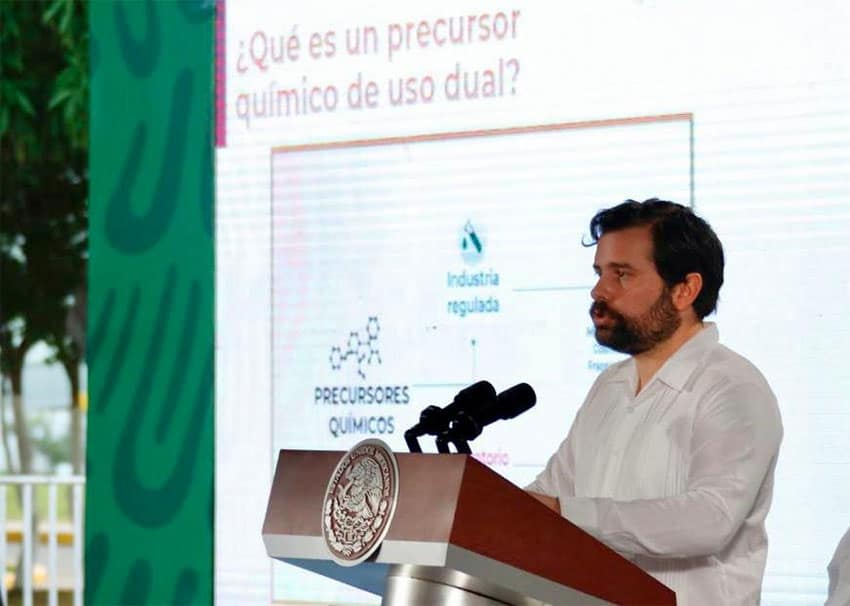The Mexican government has launched an online platform to trace so-called “dual-use” chemicals, which it hopes will help prevent legally imported chemical precursors being diverted for the manufacture of illegal synthetic drugs.
The system was designed by the Federal Commission for the Protection against Sanitary Risks (Cofepris), Mexico’s drug regulatory agency, in conjunction with the Navy. It will allow the chemical industry to apply for permits to trade regulated chemicals via a secure, transparent digital platform and assign traceable QR codes to shipments.
At a press conference, Cofepris head Alejandro Svarch explained that the system would be a key tool in monitoring 72 regulated chemicals, including ephedrine, benzene and ammonium chloride. These all have legitimate purposes in manufacturing but can also be used to produce illicit drugs such as methamphetamine and fentanyl.
“We will be able to track the use of these regulated chemicals in real time, from their departure from the port of origin to their transfer, including national tracking, multilocation, transfer between warehouses and, of course, their final use as a pharmaceutical or cleaning product,” Svarch said.

Although Mexico has long “flagged” imports of these chemicals, lack of effective follow-up often allowed shipments to go astray. Some have been stolen from warehouses, while others have been sold on to front companies used by drug cartels.
Of the six Mexican companies licensed to trade in regulated chemicals, all but one have come under investigation for irregular practices, and four currently have their activities suspended or terminated.
Furthermore, diversion of precursor chemicals has been facilitated by corruption within Mexican regulatory agencies, including Cofepris itself. At the press conference, Svarch explained that the new system would be implemented alongside complete digitalization of Cofepris’ records, after the Navy Intelligence Unit assisted in exposing a murky history of extortion and collusion between the agency and suspect drug companies.
“In an obscure archive … there was a discretional use, with no accountability, of imports of shipments of various chemicals with the intent of manufacturing, in many cases, illicit substances,” Svarch said.
Easy access to precursor chemicals is one of the factors that has allowed Mexican drug cartels to develop industrial-scale production of synthetic drugs. Precursors are usually sourced from manufacturers in Asia and imported via ports on Mexico’s west coast, before being diverted to clandestine laboratories in states such as Sinaloa and Michoacán. Most of the methamphetamine and fentanyl produced in these labs is destined for the US market.
With reports from Proceso, Associated Press and InSight Crime
